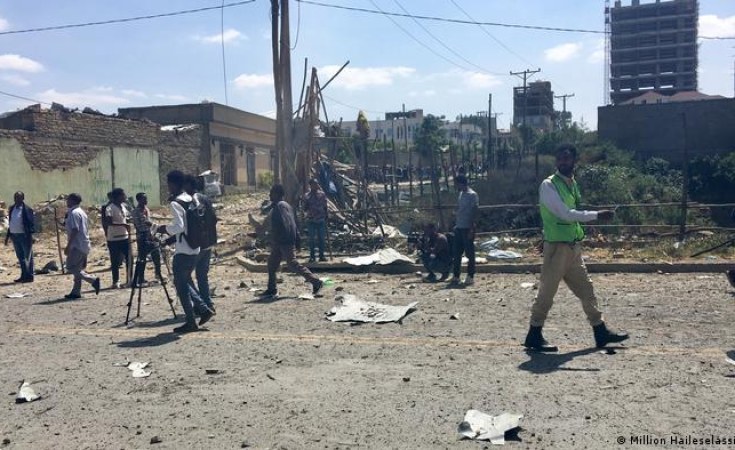Addis Ababa — U.S. Secretary of State Anthony Blinken met with Ethiopian Deputy Prime Minister and Foreign Minister Demeke Mekonnen on Wednesday as part of his one-day working visit to the country.
During brief remarks made at the start of their official meeting, Blinken sounded optimistic about the November peace deal signed between the Ethiopian federal government and Tigrayan forces.
"It's very, very good to be back in Africa, especially to be in Ethiopia at, I think, a very important moment, a moment of hope given the peace in the north that is taking hold and that continues to move forward," he said.
"There's a lot to be done, but the most important thing is to continue to deepen the peace that is now taking hold in the north," he added.
The meeting was attended by other high-level officials, including U.S. Ambassador to Ethiopia Tracey Ann Jacobson and Ethiopian Ambassador to the U.S. Seleshi Beleke.
During the meeting, officials discussed the establishment of an interim regional administration in Tigray, which was part of the November peace deal.
The Ethiopian government has lifted blockades into the region since the deal, allowing the entry of humanitarian aid, and Tigrayan forces have handed over heavy weapons to the Ethiopian government.
Officials also discussed a transitional justice policy that will bring about accountability and redress for victims, according to statement from the Ethiopian government.
Rights group Amnesty International has recently called on the U.S. Secretary of State to make human rights issues central to the talks.
Ethiopia has been lobbying to cut short a U.N.-backed investigation on human rights violations in the country, which it has said is politically motivated.
A report by the U.N. investigators, rejected by Ethiopia, found widespread violations by both sides during the war, including the government's use of starvation as a method of warfare.


